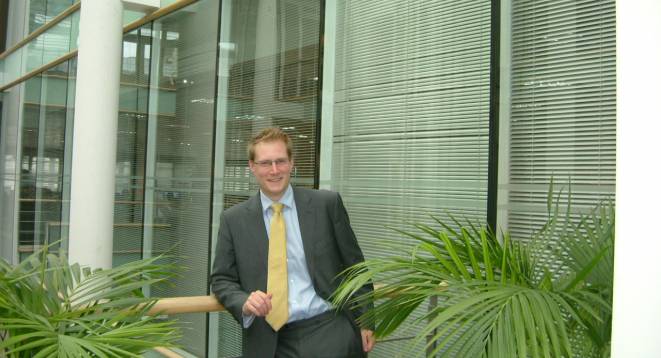Ethical investment: a growing part of the big picture for institutional investors

James Corah, Director of Responsible and Ethical Investment at CCLA, a fund manager for charities and church-based organisations, tells Pioneers Post that there is progress being made in ethical investment but there's still a long way to go.
Working with charities and faith-based organisations gives CCLA's James Corah a bird's-eye view of the financial activities of organisations with social missions at their core, and he highlighted some of the barriers to matching the financial acitivities with the social mission of an organisation.
“Certain charities still have a financial team and a charity team, and the two don’t talk to each other, they don’t share and that’s how you get charities doing things with their money that is divorced from their mission,” says Corah.
"At the same time, charities are by definition cash-strapped and looking to maximise every penny. They have to be pragmatic about what they can and can’t do, and many see a need for traditional equity portfolios,” he adds.
For social sector organisations with money to invest, the space for social investment, where investors can put money into third sector organisations to achieve both social and financial returns, looks increasingly promising. Social investment opportunities are currently valued at £202m, a figure expected to double annually over the next three to four years.
But many charities and faith based-organisations are retiscent about engaging in the marketplace. "There is an appetite for social investment, but many feel that the social investment market is not quite ready for them to engage yet," says Corah.
Instead they commonly opt for the traditional approach to ethical investment of screening unethical investments in industries including tobacco, arms and alcohol. Others look to marry an approach which diverts money away from harmful practices, with one that actively injects money into social and environmental causes.
Responsible investment runs through all of the asset management conducted by CCLA which offers a variety of funds and ethical approaches to reflect the different values of their charity sector and church-based clients.
“Our ethical fund clients have been keen to establish a target for positive investments – investments that put money into social and environmental causes.”
“The aspirational target was for 2% of that fund to be positive investments. Before long we went over that target, we’ve invested in solar infrastructure and wind farms, which provide the yields and returns our clients want.”
Corah agrees there is progress being made in ethical investment, but qualifies it with the reality of small percentages. “These ethical investment opportunities exist, but will always be a smaller part of the portfolio until things change,” he said.
The recent campaign by Operation Noah, a Christian organisation, working towards the complete decarbonisation of the British economy by 2030, put added pressure on institutional investors to divest from fossil fuel companies and promote the transition to a low carbon economy.
CCLA still holds fossil fuel companies. But, Corah takes the view that while governmental policy, and the price of carbon continue to stand in the way of a low carbon economy, engaging with companies is preferable to divestment.
“Until we have a low carbon framework that accelerates the transition the only productive role that we can play is engaging with those companies,” says Corah.
CCLA’s recent engagement work with the FTSE 350 uses the Carbon Disclosure Project (CDP) to identify laggards that are maintaining high carbon emissions in the FTSE100 and FTSE350.
“We are raising the bottom line, and have moved 72% of the companies we’ve engaged with forward. It shows that the UK’s publicly listed companies are taking this seriously.”
“We’re also working very closely with the energy and utilities companies to get them to be the best in the CDPs carbon performance ratings. BG group have taken that forward and got an A rating, which is a sign that it is working.”
As smaller organisations, like social enterprises and impact investment funds act to drive the social investment market forward, the onus is increasingly on larger institutional investors and big business to bring social and ethical values into the mainstream.
“I’ve always been someone who thinks that incremental change in large organisations brings about more impact. You’ve got to have smaller organisations to keep the ethical investment ecosystem moving forward, but if you can alter the practice in a big company you unlock a lot of them,” says Corah.
“Mainstream institutional investors control a lot of money. To get the change we want to see, we need to leverage that as a whole.”
